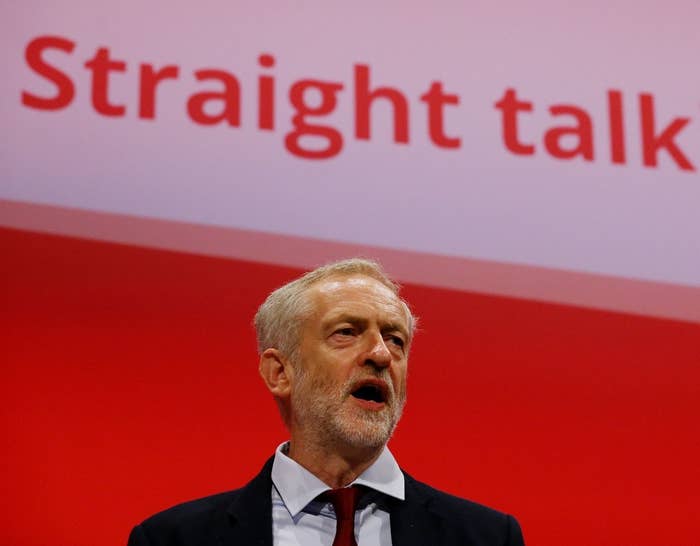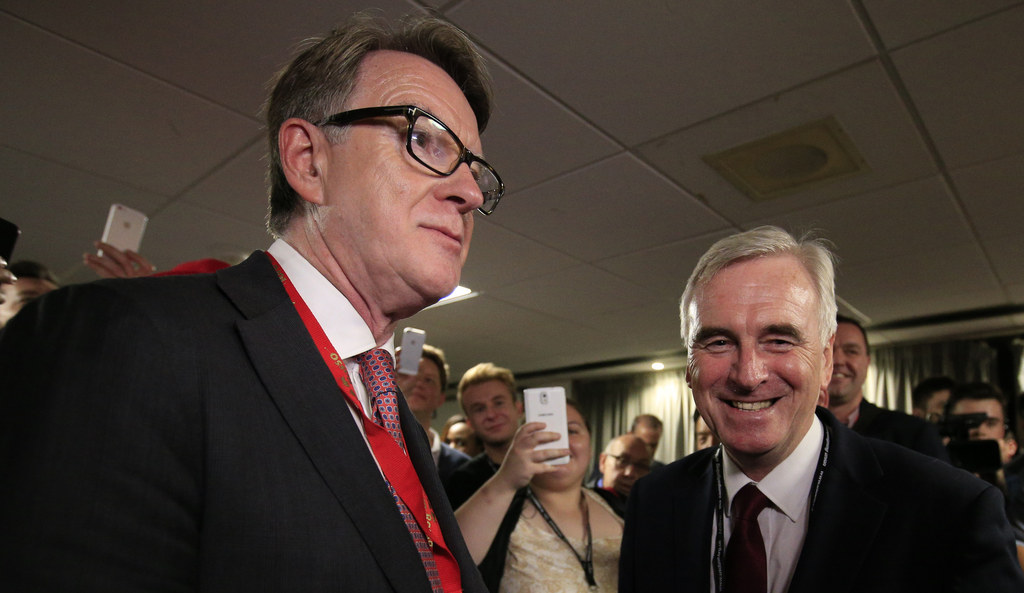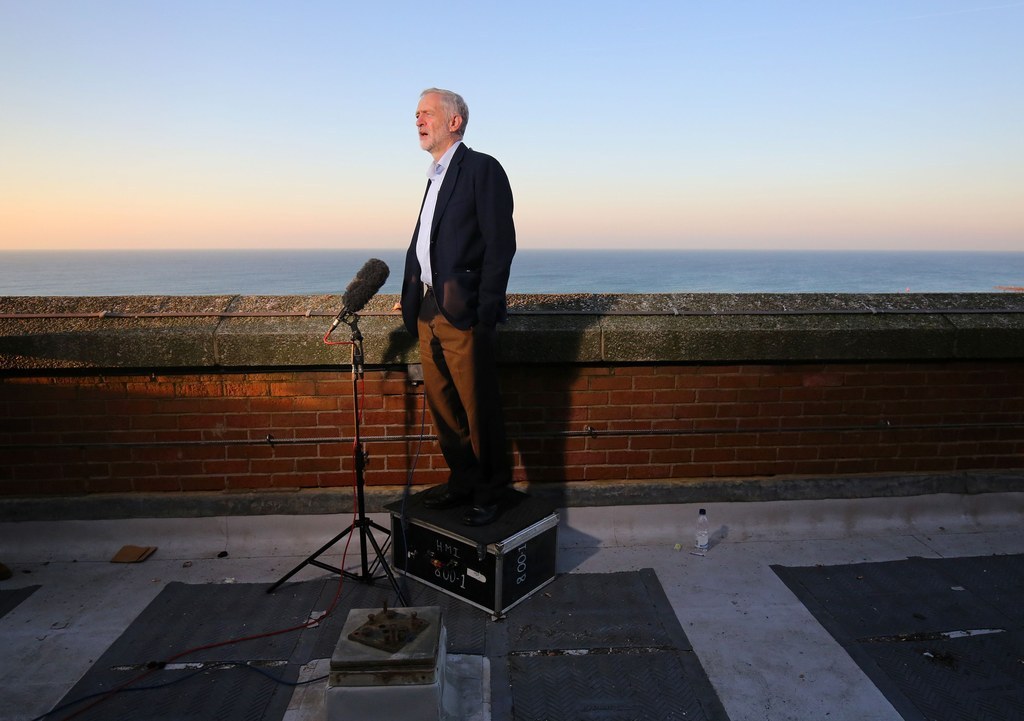
1. Prediction: The entire conference would be a disaster.
Labour staff at this year's conference were mainly relieved that the party survived the four days in Brighton in one piece. Shadow cabinet aides close to the new regime said their focus was "expectation management" and minimising negative headlines. A lot of their time was spent guiding the less experienced members of the front bench – including the leader – through the speeches, media rounds, and minor squabbles that occur when you stick hundreds of politicians in a small venue with hundreds of journalists.
In some respects his team succeeded: Expectations in the media had been set pretty low by columnists, and journalists had turned up expecting to find warring factions in the conference centre. Instead the debate was relatively moderate, partly because conference registration deadlines meant Corbyn supporters who joined the party this summer were unrepresented.
Reality: Corbyn survived and most things went as planned, even if politicians and the media are both struggling to come to terms with how the new approach to leadership will work in the long term.
2. Prediction: MPs and activists on the right wing of Labour would be in open revolt.
The expectation had been that this conference would be dominated by attacks on Corbyn from exasperated Blairites, baffled that their party was now pursuing a socialist agenda they thought had been abandoned 20 years ago.
Instead, even MPs who think Corbyn will lead the party to electoral ruin accepted that the leader received a "massive mandate" from party supporters. These MPs publicly insisted that the next step was to engage with the new regime, although many didn't stay around for the end of the conference.
That said, many were more candid in private. One Blairite Labour MP told BuzzFeed News they thought the event was hellish: "It has been awful. A delusional tribe spitting at anyone who dares to question their new deity. An insular, feral, bewildered angry mob falling for every trap laid for them."
But those views were kept quiet and one problem for this group is that – in part because they've had control of the central Labour party for years – they don't have the organisational structures to take on Corbyn. That might change.
Reality: There was the occasional outburst but they're biding their time.

3. Prediction: Shadow chancellor John McDonnell would cause trouble.
The decision to make McDonnell shadow chancellor was one of the riskier elements of Jeremy Corbyn's shadow cabinet appointments. The MP for Hayes and Harlington has a reputation for being outspoken and uncompromising. Instead, he made it through conference by making himself dull – he proudly declared his speech would be like listening to a "stultifyingly boring" bank manager.
Instead he pledged to commit to George Osborne's fiscal charter on cutting the deficit in a carefully placed interview with the Guardian, announced the backing of some big-name left-wing economists, and generally did his best to look like a professional politician.
Reality: No major scrapes.
4. Prediction: Corbyn wouldn't be able to charm the media.
Corbyn's unspun politics still comes with the same briefing notes and lines to take as the previous party leader – Labour HQ even sent out scripts to shadow cabinet MPs telling them to repeat the line that the party is now unspun.
The leader has still yet to appoint a permanent spokesperson and is instead dealing with a cobbled-together team with limited experience of frontline politics. Failing to spot that journalists would pick up on the decision to use (with permission) chunks of a speech written for previous Labour leaders is one thing, but they then briefed journalists that this was a lie, only to backtrack minutes later.
Meanwhile, while Corbyn patiently sat through rounds of TV interviews and impressed on The Andrew Marr Show, he angered regional journalists who had travelled down especially by cancelling a pre-arranged interview at the end of conference.
Reality: He just about got through – but he needs a bigger media team.

5. Prediction: The debate on whether to replace Trident would dominate the conference.
Jeremy Corbyn has always maintained he doesn't want Britain to have nuclear weapons. Yet many leading members of Labour's shadow cabinet are completely behind the government's proposal to build a replacement for the UK's Trident nuclear weapons programme.
It had been expected that ordinary members, encouraged by the leader, would debate a motion to scrap the Trident replacement motion. Instead delegates – led by big trade unions – managed to stop the debate happening by choosing to discuss other issues.
The end result was four days of Corbyn insisting that he would continue to oppose the nuclear programme and shadow cabinet members saying they backed Trident and were willing resign over the issue. The latter even resulted in public arguments on Twitter among supposed colleagues, while Corbyn himself declared that, if elected prime minister, he wouldn't fire the weapons even if his party insisted on building them. This one's far from over.
Reality: Trident dominated debate and Corbyn ended up fighting his own party – but not in the way expected.
6. Prediction: Corbyn would revolutionise conference and give power back to members.
In some respects this conference felt like a hangover from the old regime rather than a new form of politics. Hundreds of Labour moderates and lobbyists wandered around, shellshocked. Many members of the Labour HQ staff were talking about their plans to look for new jobs because they do not feel they belong to Corbyn's party. And – as shown by the decision to block the Trident debate – the conference delegates selected by local constituency parties were not as left-wing and supportive of the leader as the recent influx of new members.
But Corbyn's team have been planning – carefully taking control of dull committees that control party policy, electing their own left-wing candidates into key positions, and gaining the power to change the system and give members more freedom to overrule MPs. Next year – when local Labour parties choose which members to send to the 2016 Labour conference in Liverpool – they could pick a much more Corbyn-friendly delegation. That's when the fireworks would really start.
Reality: Corbyn changed the tone of the speeches from the stage but he hasn't yet been able to take control of the party machinery.
